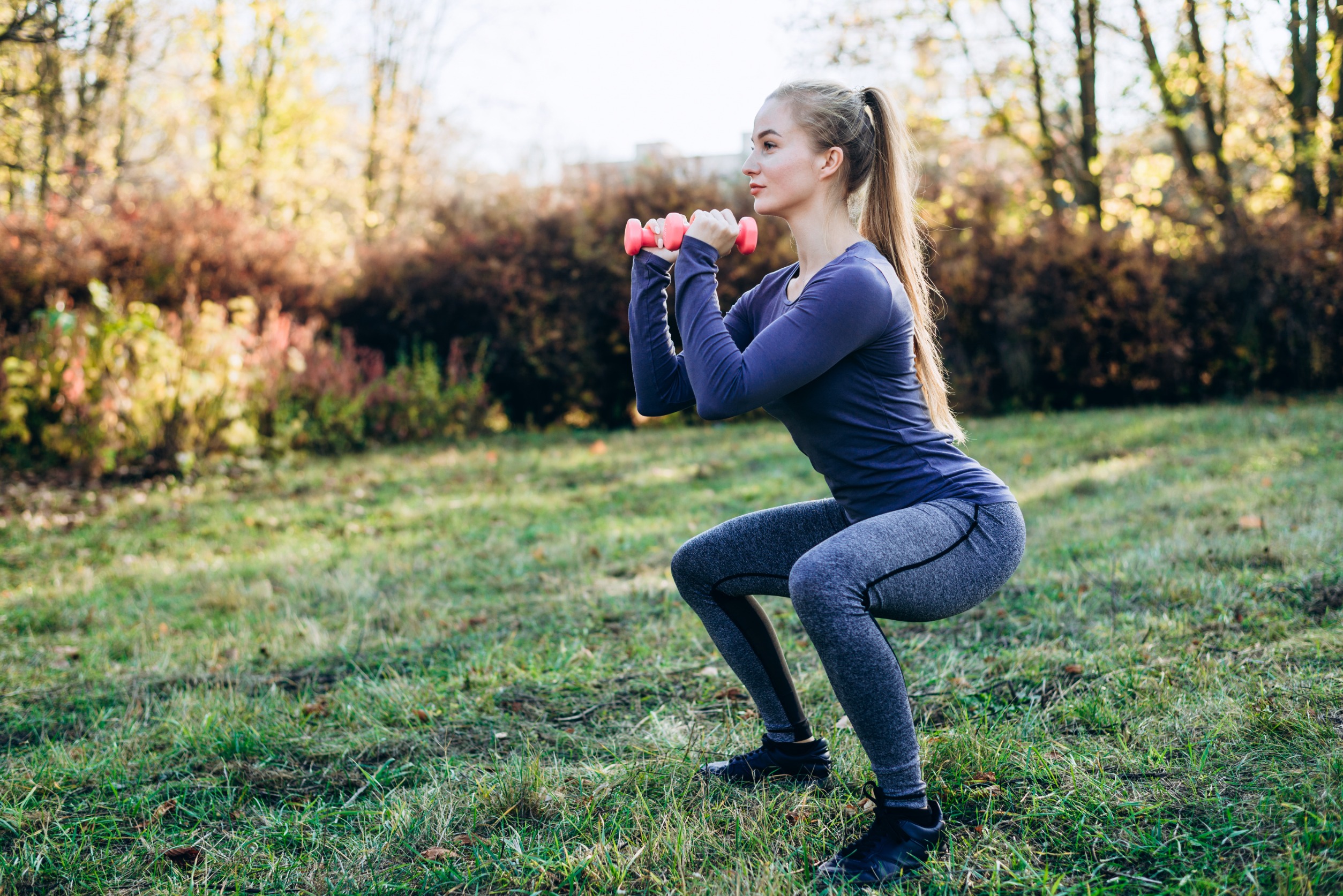BY THE OPTIMIST DAILY EDITORIAL TEAM
Squats are a gym staple, right? But what if this straightforward exercise also gave your brain a good workout? A recent study from Germany reveals that performing squats on unsteady surfaces not only develops your lower body but also improves your mental focus. “Our study found attentional resources while squatting exercises to be increased by surface instability,” the researchers and study authors Lisa Claußen and Claudia Braun concluded. So, grab your balance trainers and get ready to challenge both your muscles and your mind.
Basics: squats and resistance training
Squats are a compound exercise that works multiple muscular groups, including the quadriceps, hamstrings, and glutes. The exercise is straightforward: bend your knees and lower your hips from a standing position before returning to upright. Add weights, such as dumbbells, and the challenge—and benefits—increase.
Resistance exercises, like squats, are designed to build muscle strength by working against a force, whether that’s your own body weight, resistance bands, or free weights. Over time, these activities not only bulk up your muscles, they also improve bone density and metabolism. But here’s where things get interesting: physical activity may help improve cognitive function. According to studies, exercising might boost executive functioning and make your brain sharper over time.
The study: unstable surfaces and cognitive demands
Claußen and Braun intended to explore the relationship between exercise and cognitive performance further. They expected that squats on unstable surfaces (such as Bosu® Balance Trainers) would require more attention than squats on solid ground. To test this notion, they devised an experiment that included two important components: dumbbell squats and the Stroop task, a cognitive test in which participants name the font color of a word while ignoring what it really says. For example, the word “red” could be printed in blue ink, which would make the correct answer “blue.” The task involves intense concentration, making it an excellent test of attention.
The researchers enrolled two groups of people: 57 older adults in their 60s and 70s and 17 younger adults in their 20s. Following some preliminary screening to ensure that everyone was physically and cognitively ready for the study, participants were instructed to squat on stable and unstable surfaces while concurrently performing the Stroop task. Doesn’t that sound like a breeze? Well, not quite.
Findings: it’s all about balance (and focus)
The results were clear: squatting on an unsteady surface, such as the Bosu trainer, made things far more difficult—both physically and mentally. When individuals performed squats on a stable surface, their performance on the Stroop task decreased by nine percent. However, when participants performed the same squats on an unsteady surface, their Stroop task performance dropped by 14 percent. That extra wobble certainly requires more concentration!
Surprisingly, the researchers discovered no significant difference between younger and older subjects in terms of cognitive performance during squats. This was rather surprising, as it is commonly assumed that older persons would struggle more with tasks that require both physical and mental effort. However, the authors believe this is because some of the older individuals were eliminated from the trial after finding the dumbbell squats too difficult, resulting in a particularly fit group in the final analysis.
What does this mean for your workout?
If you want to improve your brain function while training your legs, integrating an unstable surface into your squat exercise could be the way to go. Claußen and Braun propose that “unstable devices and free weights could provide a means to raise cognitive demands during resistance training.” In other words, experimenting with squats on a balance trainer or an uneven surface can help you improve both your physical and mental health.
However, this is not a workout for the faint of heart—or those unfamiliar with resistance training. The instability heightens the total difficulty, forcing your brain to work extra to keep you balanced. What is the payoff? An exercise that challenges both your muscles and your brain.
Final thoughts: the future of exercise
The study’s findings suggest an interesting option for future exercise routines: designing regimens that engage both the body and the brain in significant ways. While the advantages of physical fitness are well-documented, incorporating cognitive challenges into your workout may be the key to long-term brain health. Whether you’re an older senior seeking to keep your cognitive function or a younger person looking to improve your focus and agility, squatting on an unstable surface could be the next fitness trend.
So, the next time you go to the gym, why not grab a Bosu ball and try it? Your brain and body will thank you.
Source study: Journal of Cognitive Enhancement—Challenge not only to the muscles: surface instability shifts attentional demands in younger and older adults while performing resistance exercise











